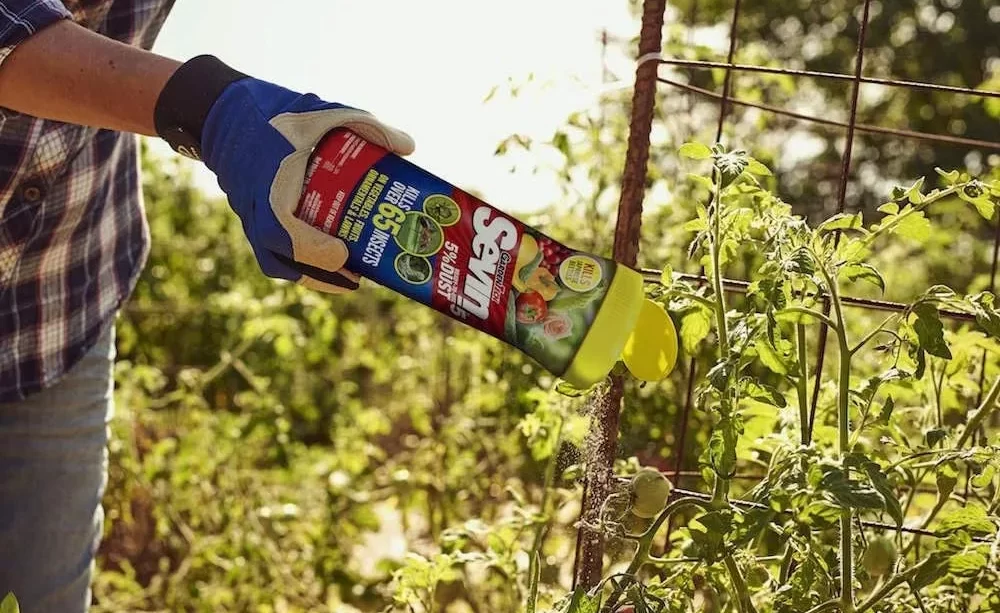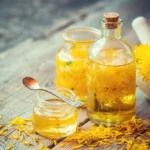In the world of gardening and pest control, the quest for organic and environmentally friendly solutions has gained significant momentum. Gardeners and growers are increasingly conscious of the impact of synthetic chemicals on their plants, soil, and the ecosystem at large. In this context, a widely recognized name in the realm of garden insecticides is Sevin Dust. However, a crucial question arises: Can Sevin Dust be considered an organic gardening product? This article dives deep into the realm of Sevin Dust, exploring its composition, usage, and the important debate surrounding its organic status. By shedding light on the intricacies of this garden insecticide, we aim to provide clarity for gardeners seeking sustainable and natural solutions.
- Garden Tech Sevin 5% Dust Bug Killer Shaker Bottle 1lb
- It doesn’t penetrate plant tissue and it is easily broken down by the environment
- Use throughout the growing season to kill insects, with short pre-harvest intervals for edibles Provides excellent control of leaf eating and sucking insects
- Gardentech sevin 5 percent dust bug killer
- Pack of 2
What is Sevin Dust?
Sevin Dust, a well-known brand of insecticide, has been a go-to solution for gardeners and homeowners battling a range of common garden pests for decades. The active ingredient in Sevin Dust is carbaryl, a chemical compound that effectively targets a wide variety of insects, including beetles, aphids, and caterpillars.
This insecticide is available in a dust formulation, making it easy to apply to plants by simply dusting them with the product. Sevin Dust is valued for its broad-spectrum insect control, quick action, and ease of use. Gardeners often turn to it to protect their ornamental plants, vegetables, and fruits from insect damage.
While Sevin Dust has proven effective at pest control, its use raises important questions in the context of organic gardening, where the emphasis is on sustainable, eco-friendly practices and avoiding synthetic chemicals. In the sections that follow, we will delve deeper into whether Sevin Dust can be classified as an organic gardening product and explore the surrounding controversies and alternatives.
Organic Gardening
To determine whether Sevin Dust can be considered organic, it’s essential to grasp the core principles of organic gardening. At its heart, organic gardening is a holistic approach to cultivating plants that prioritizes environmental sustainability and the health of ecosystems. Some key aspects of organic gardening include:
- Chemical Avoidance: Organic gardening avoids synthetic chemicals, such as synthetic pesticides and fertilizers, which can harm beneficial insects, soil microorganisms, and the overall balance of the garden ecosystem.
- Soil Health: Organic gardeners focus on building and maintaining healthy soil through natural practices like composting, crop rotation, and the use of organic matter. Healthy soil supports strong plant growth and reduces the need for chemical interventions.
- Biodiversity: Organic gardening promotes biodiversity by encouraging the presence of beneficial insects, birds, and other wildlife that contribute to pest control and ecosystem balance.
- Sustainability: Organic gardeners strive for sustainability by reducing waste, conserving resources, and minimizing the ecological footprint of their gardening practices.
- Large-Scale Pest Protection. Large-Scale Results
- Kills Over 30 Listed Pests
- Use on Lawns, Ornamentals and Around Homes
- For use on Vegetables
- Kills Ticks, Fleas, Worms, Ants, and Several Other Pests
Is Sevin Dust Certified Organic?
In the realm of organic gardening, the use of certified organic products is paramount. These products are rigorously tested and meet specific standards set forth by organizations like the United States Department of Agriculture (USDA). However, when it comes to Sevin Dust, it is essential to understand that this garden insecticide does not hold organic certification.
Sevin Dust, with its active ingredient carbaryl, is considered a synthetic pesticide. Synthetic pesticides, including carbaryl, do not align with the principles of organic gardening, which prioritize natural and non-synthetic solutions for pest control. Therefore, Sevin Dust is not eligible for USDA Organic certification or other organic certifications.
This distinction is crucial for gardeners who are committed to organic gardening practices and wish to avoid the use of synthetic chemicals in their gardens. While Sevin Dust is widely available and effective against garden pests, its synthetic nature places it outside the realm of certified organic products. In the subsequent sections, we will delve deeper into the controversies surrounding Sevin Dust and explore alternative organic pest control methods.
The Controversy Surrounding Sevin Dust
The use of Sevin Dust in the context of organic gardening has sparked significant debate within the gardening community. The controversy primarily centers around several key points:
- Synthetic Nature: Sevin Dust contains carbaryl, a synthetic chemical designed to target a wide range of garden pests. Its synthetic nature contradicts the fundamental principles of organic gardening, which aim to minimize synthetic inputs and prioritize natural, sustainable solutions.
- Impact on Beneficial Insects: Organic gardening seeks to maintain a healthy balance in the garden ecosystem, including the presence of beneficial insects like ladybugs and bees. The use of Sevin Dust can potentially harm these beneficial insects, disrupting the natural pest control mechanisms that organic gardeners rely on.
- Residue Concerns: There are concerns about the residue left behind by Sevin Dust on harvested crops. Organic gardeners aim for chemical-free produce, and the presence of synthetic pesticide residues can compromise this goal.
- Environmental Impact: The potential environmental impact of synthetic pesticides like Sevin Dust is a significant concern. Runoff from treated gardens can affect local water sources and ecosystems, potentially harming aquatic life.
Alternatives to Sevin Dust in Organic Gardening
For gardeners committed to organic practices and those seeking alternatives to Sevin Dust, there are several organic pest control methods and products available:
- Neem Oil: Neem oil is derived from the neem tree and is considered an effective and organic insecticide. It can control a wide range of garden pests and is less harmful to beneficial insects.
- Biological Controls: Beneficial insects such as ladybugs, lacewings, and parasitic wasps can be introduced to the garden to naturally control pests.
- Organic-approved Insecticides: There are organic-approved insecticides available that utilize natural ingredients like pyrethrin or diatomaceous earth to control garden pests without synthetic chemicals.
- Companion Planting: Certain plants, when grown alongside vegetables and fruits, can deter or confuse pests. For example, marigolds can help repel nematodes.
- Cultural Practices: Crop rotation, proper spacing, and maintaining healthy soil can reduce the vulnerability of plants to pests.
- Protect your oasis with 3 garden products in 1 from Captain Jack’s; Captain Jack’s Ready-to-Use Neem Oil is a multi-purpose fungicide, insecticide and miticide for your lawn and garden
- Clarified Hydrophobic Extract of Neem Oil protects your garden from common fungal diseases including rust, powdery mildew and more; apply to house plants, roses, trees, shrubs, fruits, nuts and vegetables for effective protection against garden diseases
- Captain Jack’s Neem Oil kills eggs, larvae and adult stages of insects to provide full range protection against pests and insects; this product is effective against spider mites, aphids, whiteflies and more
- Approved for organic gardening, Neem Oil spray is suitable for the production of organic produce and can even be used up until the day of harvest
- This product arrives conveniently ready-to-use with an included spray nozzle; to use, shake well and completely cover affected plants; reapply as needed every 7-14 days please see product label for full use instructions
Conclusion
In conclusion, the question of whether Sevin Dust can be classified as an organic gardening product is met with a clear answer: it is not considered organic. Its synthetic nature and potential impact on beneficial insects and the environment place it outside the realm of organic gardening practices.
For gardeners who adhere to organic principles and seek sustainable pest control methods, there is a wealth of organic alternatives available. These alternatives not only prioritize natural solutions but also contribute to the overall health and resilience of the garden ecosystem. As the gardening community continues to evolve toward more environmentally friendly practices, the choice of organic pest control methods becomes increasingly essential in creating a thriving and eco-conscious garden.






